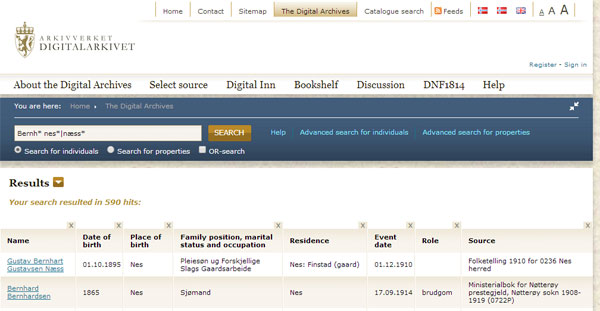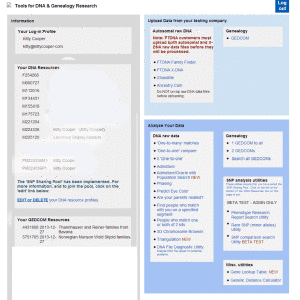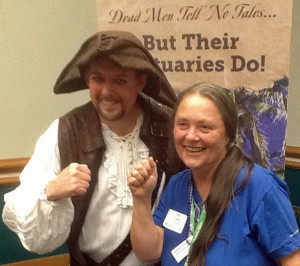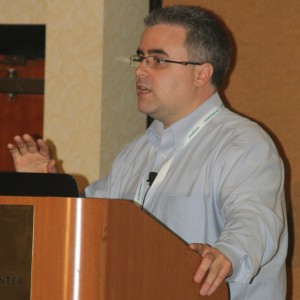UPDATE 13 DEC 2020- the archives have a new look and new site at: https://www.digitalarkivet.no/en/
Many of us Norwegian-American researchers have been complaining about the new archives and its search function. So I went to the talk by Finn Karlsen of the Digitalarkivet hoping to gain a better understanding. Of course the first thing he told us was that the old archive would die at the end of March as would the links we might have been using in our trees to reference data there. This is not news as we have been hearing it for a while.
After listening to him I thought I understood what I had been doing wrong with my searches at the new digital archive site – I had not understand how to correctly use wildcards there. Apparently the asterisk * wildcard can only be used at the beginning or end of a word, not in the middle. Also the pipe character | can be used as an OR.
Finn of course made it look easy with his examples of searching. He promises to have his presentation posted at his website [UPDATE 13-DEC-2020: site no longer available]
The simple search example he gave in his talk was
Bernh* nes*|næss*
So I tried that at home and got this:
 Continue reading →
Continue reading →




